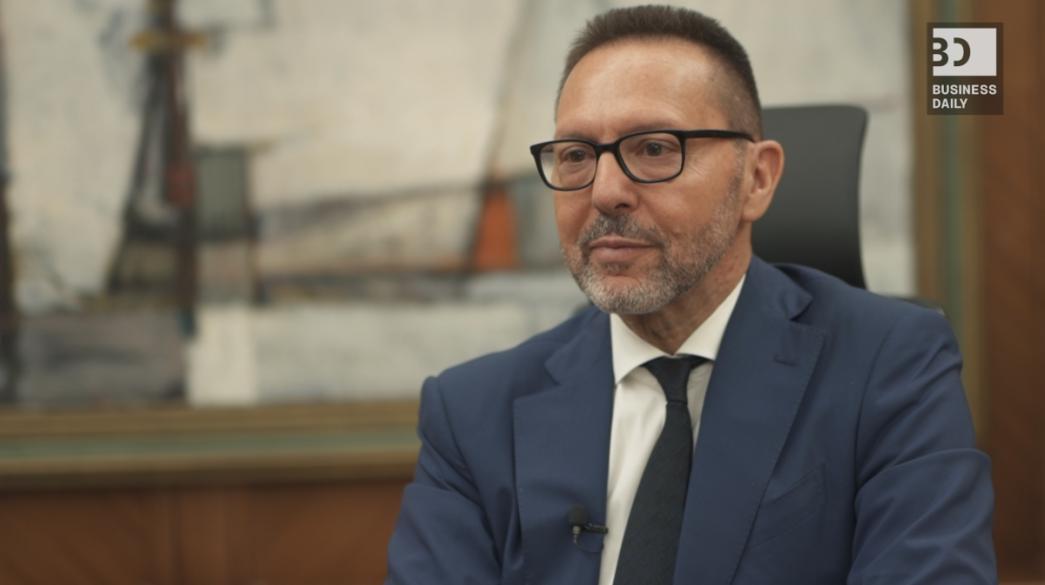Bank of Greece governor Yiannis Stournaras talks about the next day for Greece, the historic opportunity of the EU's Recovery Fund, as well as current conditions and the prospects of the banking system, in an exclusive interview to BusinessDaily.gr.
For many years, banks have been a source of uncertainty and concern. Where are we today and what are the prospects for the banking system from now on?
YS: Today we are much better off. One of the major reforms made during the crisis was to support the banking sector with more than 50 billion in capital. We had a very difficult time with banks, we had periods with capital restrictions, with capital controls. Today, however, we have come out of this process and the banks are much stronger. Some of them very rightly are proceeding with capital increases. You know, for every 100 euros that banks lend, around 14 to 15 euros must be capital funds. So some of them rightly saw this in time and are proceeding to strengthen their capital adequacy. I would like the others to also see this, along with the smaller banks, the ones we call "non-systemic banks". Bank of Attica started and it went ahead and took very high provisions in order to be privatized through a capital increase. And that may happen within the next month. But other banks, even cooperative, non-systemic banks, must now see their future in an economy that must have stronger banks, whether systemic or non-systemic.
In the previous years the banking system underwent restructuring with dozens of bank absorptions. Now we have the extra pressure of the digital revolution. Some argue that we may see new mergers of large banks, others say that new banks should be created now. How do you see the situation?
YS: Probably towards the second direction, because there can be no mergers between the big banks. Four banks are too few. They control over 96-97% of the banking system. I do not think it makes sense for there to be mergers between the big banks. We need to strengthen the smaller banks, build banks that will make the bigger ones more competitive. In new technologies, for example, with new products.
Have we solved the bad loan problem?
YS: We have taken very important steps, but we have not solved it yet. At the end of the previous quarter, bad loans amounted to 30 pecent of the total or 47 billion. It is still very high, 12 times higher than it is in the rest of the eurozone. The pandemic will also create problem loans. We do not yet know how much, there is uncertainty, but it will clearly be an amount that is not negligible. We have said it to be 8 to 10 billion. I wish it were less. And above all we need to see how many problem loans there will be after the pandemic. Let's not just look at today, when the state is still providing support.
There is criticism of the banking system for limited financing especially for small businesses. Can the banking system meet this challenge?
YS: Our concern today is to take advantage of the very high liquidity in the economy. There will be more liquidity in coming years, so that the banks can turn this into loans for healthy and sustainable Greek companies, large and small. As the Greek economy is structured, a very large percentage of employment is in what we call small and medium sized enterprises. Small and medium-sized enterprises must survive, we do not have the ability to close viable enterprises. So the banks have to make appropriate programs. The state has helped with the guarantees it has given. If a large part of the credit expansion, I would say 100%, to small and medium-sized enterprises is now based on the guarantees of the Greek State. We want the banks to be strong, to be sufficiently capitalized with high quality capital to be able to fulfill their role and to lend not only large, but also small and medium-sized healthy companies, so that this money that will come to Greece across the economy and not just a small part of it. That is, not to create pockets of high growth and low growth. That is, not to create a two-level economy.
Greek banks have raised more than 40 billion euros from the emergency program of the European Central Bank. To what extent has this liquidity reached households and businesses? Do you think there could be better management so that there are more loans?
ΥS: Indeed, today the Eurosystem, the ECB and the national central banks have subsidized aid programs for banks to be able to lend to the private economy. From these programs, Greek banks have today absorbed 47 billion euros with negative interest rates from -1% to -0.5%, ie the banks have been subsidized to lend. This is the first time this has happened. In addition, we have a very large increase in savings, which is partly due to deferred consumption due to the crisis and on the other hand is due to welfare reasons for the future. When one pandemic comes, people become more careful. Therefore, we have a very large increase in liquidity for Greek banks. I cannot say that I am satisfied, when the banks have channeled to the purely private sector of the economy, to the non-financial sector, around 5 billion this year, while they have taken 47 billion plus from the increase in deposits. The rest are in Greek Government bonds and deposited again in the central bank. I would like the segment, which goes to businesses, especially small and medium-sized enterprises, to increase. Now, you will tell me, while this is easily said, it is more difficult to be done. Banks say that small and medium-sized enterprises are not eligible for funding. We need to look at the reason and help small and medium-sized enterprises, because there are more than 700,000 of them. And the total employment in them is 2 million. We cannot ignore this piece.
You mentioned the tools to deal with bad debt. The Bank of Greece had submitted a proposal for the creation of a bad bank. This proposal was not accepted by the government. Is there a question of cooperation with the government?
YS: Let me correct you a little. We no longer call it bad bank. It is now called an asset management company. Because many people confuse a bad bank with liquidators, a bad bank does not liquidate. The asset management company tries to consolidate the banking system without clearing it. The liquidation is different. Some confuse PQH, which is a liquidator, with an asset management company, which the Bank of Greece has actually proposed for two years.
Let me clarify one thing: the Bank of Greece has no particular interest in promoting one solution in relation to another. The Bank of Greece is not a shareholder of the banks, it is a supervisor. But it has an obligation to look ahead and an obligation, if it believes that one solution is better than another, to propose it to the government. We did the same and proposed a solution that all international organizations, without exception, consider to be the most effective measure to clear bad debt. And mainly to solve the other problem, which is a twin problem in Greece, which other countries do not have to the same degree as us. This is what you mentioned before, the deferred tax requirement. The Bank of Greece has executives who have been here since the beginning of the crisis. Probably the most experienced in the world in these matters. These executives, along with three top international consultants, came up with a proposal for an asset management company that takes into account all European legislation and not only solves the problem of bad debt, but also the problem of deferred taxation. The institutional role of the Bank of Greece, however, stops here. We made this proposal because we thought it was the best possible.
Do you know what makes, say, the government reluctant to take advantage of the proposal?
YS: No, we have never all sat at the same table. The government, of course, took advice and evaluated our proposal. I just saw the statement of a government official that it is considered to be an expensive solution. We do not agree with that, our estimates show that for the Greek taxpayer, this is the most effective solution.









